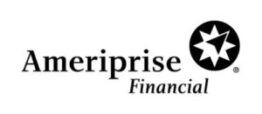
Michael Thomas Standley of Saint Louis Missouri a stockbroker formerly employed by Oakbridge Financial Services has been fined $5,000.00 and suspended for six months from associating with any Financial Industry Regulatory Authority (FINRA) member in any capacity based upon consenting to findings that he executed transactions in a customer’s investment account without authorization. Letter of Acceptance Waiver and Consent No. 2015048133101 (Oct. 26, 2017).
According to the AWC, during the time Standley had been associated with Oakbridge Financial Services, he recommended and ultimately effected an investment strategy in customer RM’s investment account. The AWC stated that Standley pursued a strategy involving the use of reverse-convertible notes, where he placed sixty-five purchases and sales of those notes at his discretion. Specifically, Standley decided the price to purchase or sell, and placed the particular transactions without having discussed them with RM beforehand. Yet, RM reportedly never provided Standley with any written permission to place funds in her account on a discretionary basis; the firm also never authorized Standley to exercise discretion.
Moreover, another seventy-three transactions had been executed in customer RM’s brokerage account despite those transactions failing to conform to an investment strategy that RM and Standley established for RM’s account. Standley evidently placed those trades without conversing with RM about them or obtaining written authorization from RM before they were made. Consequently, FINRA found that Standley’s conduct was violative of FINRA Rule 2010 and NASD Rule 2510(b).
This is not the first time that Standley has been subject of a regulatory action concerning his misconduct in the securities industry. Specifically, the State of Missouri Office of Secretary of State issued an Order to Cease and Desist and Order to Show Cause why Restitution, Civil Penalties, Costs, Censures, And Bars/Conditions Should not be Imposed, where the Commissioner found that Standley, inter alia: (1) failed to supervise an agent’s activities which included selling unregistered securities and defrauding investors; (2) aided and abetted fraudulent activities; (3) exercised discretion in accounts that were not approved for discretionary trading; (4) effected unsuitable sales of investments; and (5) falsified statements in reference to church bond valuations. In the Matter of Oakbridge Financial Services, Inc. et al., Case No. Case No. AP-16-11.
Particularly, Standley was responsible for supervising an Oakbridge agent, Beyer, who offered and sold Heroic investments – securities neither registered nor exempt from registration that Beyer sold through an outside business activity. Beyer reportedly made a series of fraudulent statements to customers, which included promising them ten percent annual returns and guaranteeing customers’ principal investments in Heroic. The Order stated that Standley was responsible for investigating the nature of Standley’s outside business activities but failed to do so. The Commissioner concluded that Standley’s conduct was violative of Section 409.4-412(d)(9), RSMo.
The Commissioner additionally stated that Standley aided Beyer’s fraudulent activities as a result of Standley’s supervisory failures. Critically, the Commissioner indicated that Beyer practically disclosed that he was effecting a fraudulent scheme; yet, Standley neglected to investigate his activities, which caused investors, including Oakbridge customers, to be defrauded. The Commissioner found Standley’s conduct violative of Section 409.5-501.
The Order then revealed that Oakbridge customers had been placed in Recons – which the Commissioner described as complex, structured reverse convertible products – that were not suitable for the customers, and those customer’s assets had been over-concentrated in the investments. Evidently, Recons were placed in customers’ accounts on a discretionary basis; however, the accounts were not authorized for anyone to exercise discretion in the customers’ accounts. Further, the Recons were sold to customers without customers being provided information about the terms of the investments. The Commissioner concluded that Standley’s conduct here was violative of Section 409.4-412(d)(13).
In addition, the Order stated that Standley engaged in fraudulent activities relating to the valuations of church bonds owned by customers of Oakbridge. Evidently, there was no market price for the bonds because of there being no secondary market price; yet, those bonds were somehow valued by Standley. Standley purportedly attempted to trick the customers of Oakbridge into keeping their assets with the firm by providing them some type of false sense of security about the value of their investment portfolios. Standley’s conduct in this regard was found by the Commissioner to be violative of Section 409.5-501.
FINRA Public Disclosure reveals that Standley is referenced in two customer initiated investment related disputes containing findings of his violative conduct while employed with Moloney Securities Co., Inc. Specifically, Standley was subject of a customer initiated investment related arbitration claim in which he was ordered to pay a customer $10,500.00 in damages based upon being found liable on the customer’s claims of suitability and churning of stocks in the customer’s individual retirement account. FINRA Arbitration No. 02-01401 (May 23, 2003).
Thereafter, Standley was named in a customer initiated investment related arbitration claim in which he was ordered to pay the customer $8,450.00 in compensatory damages based upon being found liable for failing to obey the customer’s instructions, mismanaging the customer’s investment account, and investing the customer’s assets in mutual fund, equity and derivative products that failed to conform to the customer’s investment objectives. FINRA Arbitration No. 08-03024 (May 15, 2009).
Standley’s registration with Oakbridge Financial Services was terminated on August 16, 2016 – a day after the firm was expelled by FINRA.
The information contained herein has been obtained from reliable sources however may not be accurate and is not guaranteed by us. Readers are encouraged to undertake their own independent investigation and evaluation of the relevant facts. All claims and allegations are subject to adjudication, decisions may be subject to appeal, and no inference is intended, nor should any inference be made from any information contained herein from any source.
This posting and the information on our website is for general information purposes only. This content should be not considered legal advice, and any responses, comments, e-mails, other communications do not form any attorney client relationship. Attorney Advertisement. See Important Disclaimer
Guiliano Law Group
Our practice is limited to the representation of investors. Over the last three decades, we have recovered tens of millions of dollars for more than 1,000 injured investors from all over the United States and from all over the World. We accept representation on a contingent fee basis, meaning there is no cost to you unless we make a recovery for you. There is never any charge for a confidential consultation or an evaluation of your claim. For more information, contact us at (877) SEC-ATTY.
For more information concerning common claims against stockbrokers and investment professionals, please visit us at securitiesarbitrations.com
To learn more about FINRA Securities Arbitration, and the legal process, please visit us at securitiesarbitrations.com








